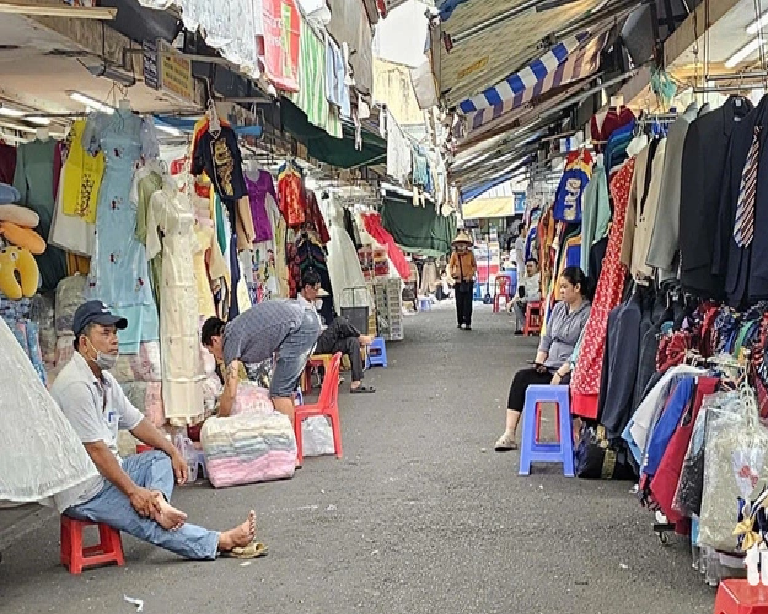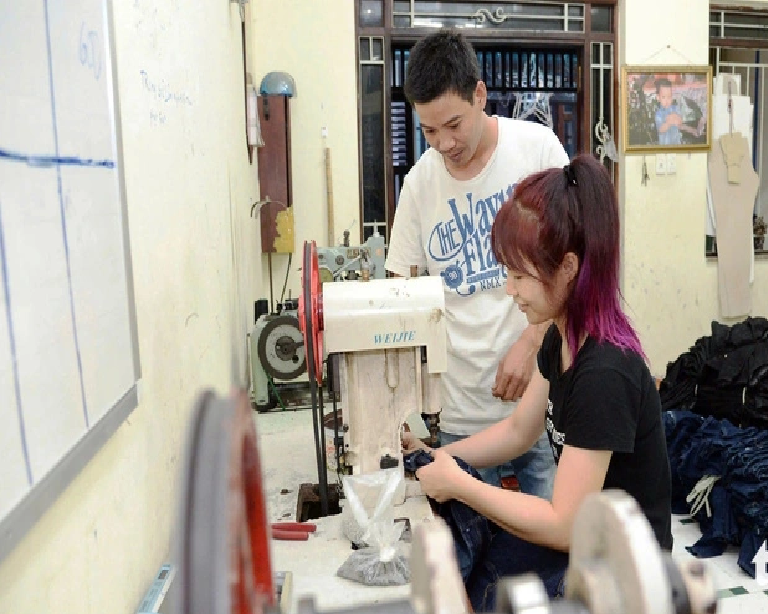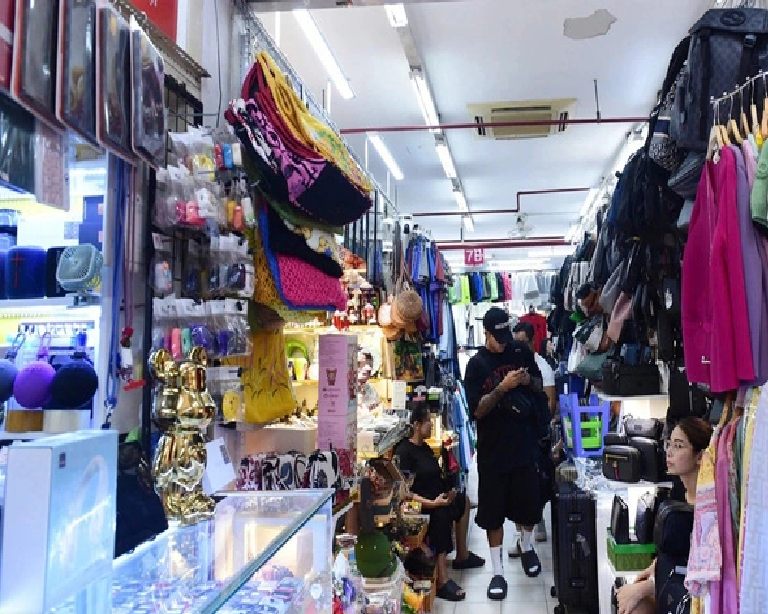Low-cost imports from China have inundated the Vietnamese market and stolen market share from local producers.
To level the playing field for local manufacturers, experts advocate for a two-pronged approach: taxing cheap imports and boosting domestic production through capital injections, infrastructure development, and streamlined logistics.
Chinese goods flood Vietnam
'Nai' – a popular Facebook page which sells fashion and personal items via live streams – primarily markets made-in-China products.
A set of six pillowcases, for example, retails on the 'Nai' page for just VND99,000 (US$3.89). Similarly, 'Nai' sells three knives for VND99,000, and a hotpot for VND199,000 ($7.8).
Another Facebook page leverages its large weekly orders to secure significant discounts of 20-30 percent on fashion items from Guangzhou.
This allows them to offer these products at equally competitive prices, attracting customers seeking affordable fashion trends.
Ngo Thi Hoa, the owner of a live stream channel which sells fashion products, told Tuoi Tre (Youth) newspaper that she used to vend both Chinese and Vietnamese commodities, but eventually gave up on the Vietnamese products out of the convenience in importing and diversity of their Chinese counterparts.
A pair of shoes shipped from China is priced at some VND100,000-150,000 ($3.9-5.9), while a Vietnamese lookalike typically costs VND150,000-200,000 ($5.9-7.9). In addition, Chinese manufacturers are continuously producing new models, Hoa said.
Many Chinese products sold in Vietnam are sourced from domestic warehouses rather than being directly imported from China, allowing retailers to streamline distribution and reduce dependency on imports.
Vietnamese e-commerce platforms are also filled with Chinese goods, offering competitive prices and appealing promotions.
Many online shops further attract customers with substantial discounts, free shipping, and compensation for delivery delays.
|
|
| A Vietnamese clothing outsourcing unit struggles to compete with low-cost Chinese goods. Photo: Tu Trung / Tuoi Tre |
Vietnamese goods lose ground
Nguyen Dang Hien, vice-chairman of the Ho Chi Minh City Industrial Park Business Association, told Tuoi Tre that Chinese companies have a keen understanding of consumer demands in developing countries like Vietnam, particularly in rural areas, allowing them to offer affordable and diverse products that cater to these markets.
Behind-the-scenes incentives play a significant role in promoting Chinese-made products.
For instance, while Vietnamese beverage companies typically provide commission rates of 12-15 percent to first-tier suppliers, Chinese beverage firms often offer substantially higher commissions, making them more appealing to retailers.
Nguyen Ngoc Luan, CEO of Meet More Vietnam Co. Ltd., a coffee producer in Cu Chi District, Ho Chi Minh City, said Vietnam has a strong coffee market, but still faces stiff competition from Chinese rivals.
Chinese goods receive huge support from Chinese e-commerce platforms, such as Temu and TikTok, and Chinese firms put significant effort into partnering with social media influencers to promote their products on various channels.
|
|
| Chinese clothing is on display at a trade center in District 1, Ho Chi Minh City. Photo: Tu Trung / Tuoi Tre |
Local production suffers
Prior to the COVID-19 pandemic, 50-60 percent of the shoes purchased in Vietnam were locally made, said Nguyen Van Khanh, vice-chairman and general secretary of the Shoes and Leather Association of Ho Chi Minh City.
That number has since plunged in the wake of the influx of Chinese goods.
A pair of Chinese sneakers sold in Vietnam for VND60,00-70,000 ($2.4-2.8) would sell for a minimum of VND100,000 ($3.9) if it was Vietnamese-made, Khanh said, primarily because Chinese producers do not need to import input materials while Vietnamese firms do.
China has also developed large trade centers in areas bordering Vietnam which allow its products to be easily introduced to Vietnamese partners, Khanh explained.
Nguyen Dang Hien, a member of the Ho Chi Minh City Industrial Park Business Association, noted that Chinese goods benefit from strong support from e-commerce platforms and transport and logistics companies, enabling Chinese producers to expand into international markets.
China leverages capital and technology incentives to lower production costs.
An e-commerce expert stated that Thailand is employing a similar strategy, with schemes to establish warehouses along its borders.
In contrast, Vietnam has relatively few such warehouses, resulting in a significant challenge for Vietnamese businesses seeking to penetrate foreign markets.
CEO Luan suggested that addressing the influx of Chinese products requires imposing taxes on low-cost imports, promoting Vietnamese goods, and reducing taxes and fees on materials for local products.
Meanwhile, Doan Thi Thu Ha, a representative of Thu Duc Market's management board, reported that traditional wet markets are struggling under the weight of taxes, fees, and the growing popularity of e-commerce.
As a result, many merchants are downsizing their operations or even leaving the markets altogether.
Like us on Facebook or follow us on Twitter to get the latest news about Vietnam!




















































